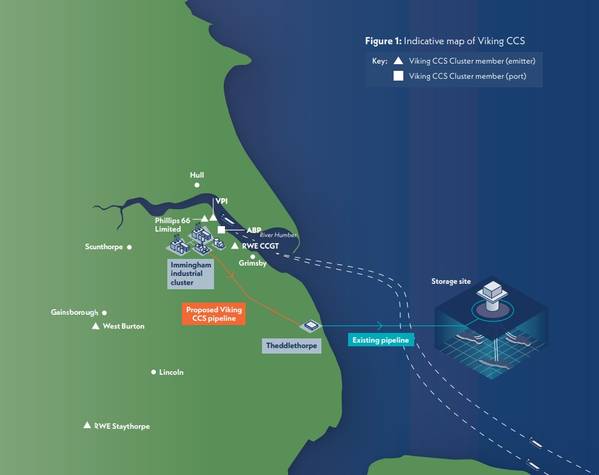
UK-based oil and gas company Harbour Energy and oil major BP on Monday said they had agreed to develop the Viking CCS transportation and storage project in the UK.
Harbour continues as operator of Viking CCS with a 60%, with BP acquiring a 40% non-operated share.
The Viking CCS is located close to the heavily industrialized Humber region, and, according to Harbour, has the potential to meet one third of the UK Government's target to capture and store up to 30 million tonnes of CO2 a year by 2030.
The announcement follows the UK Government's recent decision to launch Track 2 of its CCS cluster sequencing process, and its recognition that Viking CCS is one of two leading transport and storage system contenders for this process.
"The delivery of the Viking project could be transformational for the region, potentially unlocking up to £7 billion of investment across the full CO2 capture, transport, and storage value chain over the next decade, creating over 10,000 jobs during construction, and providing an estimated £4 billion of gross value add (GVA) to the Humber and its surrounding areas," Harbour Energy said.
Harbour and BP already share an interest in the Lincolnshire Offshore Gas Gathering System (LOGGS) pipeline which is intended to be repurposed as part of the project.
"This provides a unique, low-cost opportunity to connect customers to the depleted Viking gas fields, which recently had their 300 million tonnes of CO2 storage capacity independently verified," Harbour Energy said.
Viking CCS also has access to a planned new CO2 shipping terminal at Associated British Ports' Port of Immingham, with the potential for shipped CO2 from dispersed emitters elsewhere in the UK and internationally to be transported for permanent storage within the Viking fields.
Subject to the outcome of the Track 2 Cluster Sequencing Process, a final investment decision is expected in 2024. The project could be operational as early as 2027 and potentially store up to 10 million tonnes of CO2 per year by 2030, Harbour said.



